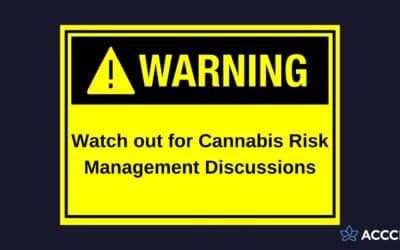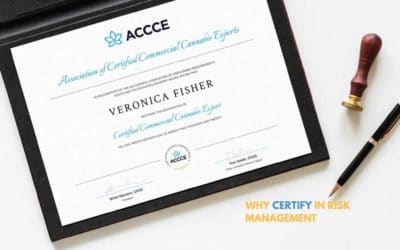The importance of compliance culture in managing compliance risk is understood by compliance and legal departments across the world and in every industry sector. It is so universally accepted that the formula to avoid regulatory enforcement is an open secret. All stakeholders in your organization, including contractors and vendors, must understand why compliance matters and integrate compliance into their day-to-day activities. These proactive behaviors can mean the difference between working with your regulators to comply, or being fined and penalized into compliance. Building a strong culture of compliance is essential to most businesses, but especially important to cannabis operators managing a rapidly changing regulatory landscape with increasing regulatory expectations.
Compliance Tone at the Top: Intentional Compliance
A culture of compliance requires senior management to advocate a culture where ethics and compliance are treated as part of everyone’s job. Regulators and compliance officers know that this means compliance cannot be left solely to one department or person. A compliance officer must know the specific laws and regulations, but everyone should know the role compliance plays in their job function so they can do their part. This requires a clear compliance policy and communication between senior managers and stakeholders to implement the compliance program. Adding role-specific compliance requirements to every job description and vendor contract, like completing training prior to the due date, is a quick and effective way to communicate business expectations.
Compliance by Design: A Competitive Advantage
Compliance is an intrinsic part of your business, not an afterthought. It should be considered at all stages from product development and within the processes and procedures used in your day-to-day activities. Making compliance an inbuilt part of your corporate identity reduces the cost of having to become compliant later. All parts of the business must be included in the compliance program for it to be successful.
Another way to design in compliance is to tie it to specific rewards. Rewarding compliant behavior communicates that compliance is good for the company and employees want their companies to succeed. This also clarifies the goals of compliance that move employees towards a reward, not just away from punishment.
When implemented correctly, compliance becomes a competitive advantage because you reduce the operational expense of making a compliant cannabis product and decrease the likelihood of fines and penalties.
How a Culture of Compliance Looks: Everyone Pulling Towards a Successful Business
First, the compliance management function must be appropriately staffed and structured. Compliance requires a certain level of expertise, which is why compliance officers must have continuing education, similar to lawyers and accountants.
Second, the organization must budget for tools to carry out the tasks associated with compliance. Like accounting, customer service, or any other business department, tools increase efficiency, effectiveness, and business continuity and should not be overlooked.
Third, cannabis regulations change rapidly, and stakeholders must be kept updated on the latest compliance changes and additions that impact their role so that they can make the best business decisions for the company. Training should be customized to address the specific risks that the company faces and be provided at on-boarding and periodically throughout the stakeholder relationship. This way, everyone is clear about the company’s expectations.
Fourth, leaders must take compliance violations seriously and delineate in advance the consequences of such actions. Transparency of what measures your business will take helps stakeholders better understand what management expects. Punishment is the last measure taken to enforce the culture of compliance, and transparency helps all stakeholders understand where the line of right and wrong is, so no one accidently crosses it.
Start Your Culture of Compliance Today
A strong compliance culture isn’t created in a day, or set once and forgotten. Making compliance part of “business as usual” vastly increases your chances of meeting your regulatory obligations and avoiding regulatory enforcement.
If you’re ready to evaluate or take your first steps towards a strong compliance culture, join us for our webinar Introduction to Compliance Management – Establishing the Culture of Compliance.



